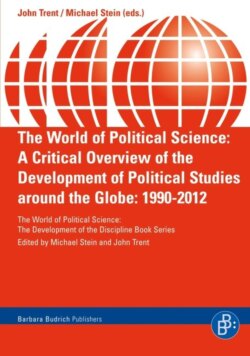Читать книгу The World of Political Science - Группа авторов - Страница 16
На сайте Литреса книга снята с продажи.
4. The Development of Political Science in Korea 4.1. Historical Background
ОглавлениеPolitical science in Korea was shaped in tandem with its complex historical development (Park 2006). The first political science book was published in 1896 during the last years of Chosun dynasty by a reformist scholar, Yu Kilchun (1856-1914). But its development was retarded by Japan’s colonization of Korea (1911-1945). Instead, the Japanese scheme of academic teaching and writing overwhelmed what could have been a more endogenous development of Korean political science. What they established instead was the dominance of staatslehre. Since the Directorate General of Korea (its colonial government) imposed a Japanese-style administrative system without the element of parliamentary politics Japanese bureaucracy dominated its colonial politics. Without having full fledged civil freedoms and political democracy, even a fledgling Korean political science was not possible.
Rather noteworthy was the influence of Marxist ideas, which was diffused through Korean students in Japan. Also one might speculate that the Japanese colonialist legacy is still felt in the way in which some features of central bureaucracy are preserved in Korea. After all, bureaucracy was developed most vigorously during its military dictatorship period (1960-1987). In much the same way as the Japanese bureaucracy had enhanced its power in the 1930s and 1940s with its economic development momentum kept high and war mobilization accelerated, the Korean bureaucracy empowered itself during the military dictatorship (Woo-Cumings 1999).
The protagonist in all this, Chung Hee Park, was after all trained in the Japanese Imperial Army College and was a Japanese military officer during the wartime period, he learned much from Japan which reemerged from the ashes and joined the club of rich countries by the mid-1960s. The long period of authoritarian politics, first by Syngman Rhee and then Chun Hee Park and his successors, left a very strong imprint on Korean politics and Korean political science. Two noteworthy phenomena occurred. First, the maldevelopment of political science was inevitable, by which I mean that it was not easy for political scientists to openly write about Korean domestic politics. In order to preserve their integrity, many political scientists specialized either in political philosophy or international relations. Political philosophy was used as a sort of mask to disguise their critical tone without even touching on contemporary Korean politics. International relations was popular among many political scientists because one did not have to criticize the government very much in teaching it. Second, foreign Ph.D.s in political science were more common in Korea. Syngman Rhee, first President of the Republic of Korea, was a Princeton Ph.D. (1910). Advanced degrees in political science were not accorded until 1973 in Korea. At present American Ph.D.s are dominant. This is in stark contrast to Japanese political science.
